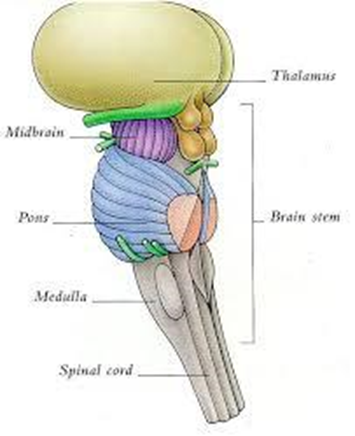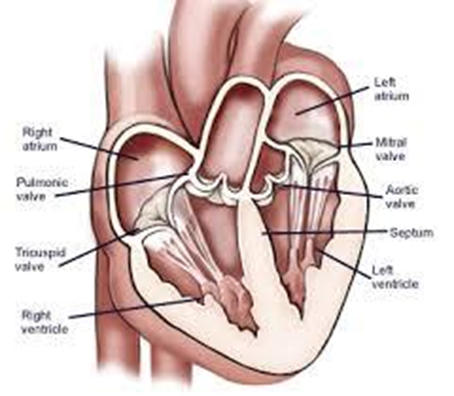Which of the following is the area of the brain that contains the medulla, pons, and midbrain?
Cerebellum
Brain stem
Ventricles
Chord plexus
The Correct Answer is B
a: Cerebellum - The cerebellum is responsible for coordination and balance but is not where the medulla, pons, and midbrain are located.
b. Brainstem-The brainstem is composed of the medulla oblongata, pons, and midbrain. It regulates many basic physiological functions such as heart rate, breathing, and sleep.

c: Ventricles - The ventricles are fluid-filled cavities within the brain, not regions containing the medulla, pons, and midbrain.
d: Choroid plexus - The choroid plexus produces cerebrospinal fluid (CSF) within the ventricles of the brain, but it is not where the medulla, pons, and midbrain are located.
Nursing Test Bank
Naxlex Comprehensive Predictor Exams
Related Questions
Correct Answer is C
Explanation
a: Adrenal cortex and calcitonin hormone - Calcitonin is primarily secreted by the thyroid gland, not the adrenal cortex.
b: Hypothalamus and prolactin hormone - Prolactin is primarily secreted by the anterior pituitary gland, not the hypothalamus.
c. Anterior pituitary and growth hormone -The anterior pituitary gland secretes growth hormone (GH), which regulates growth, metabolism, and development.
d: Thyroid and thyroid-stimulating hormone - Thyroid-stimulating hormone (TSH) is secreted by the anterior pituitary gland, not the thyroid gland directly.
Correct Answer is B
Explanation
a. Pulmonary: The pulmonary valve separates the right ventricle from the pulmonary artery, which carries blood to the lungs.
b. Atrioventricular: The heart has four chambers: two upper atria and two lower ventricles. The atrioventricular valves (AV valves), also known as tricuspid and mitral valves, separate the atria from the ventricles and prevent blood from flowing backward from the ventricles to the atria.

c. Semilunar: Semilunar valves (aortic and pulmonary) are located at the base of the aorta and pulmonary artery, preventing blood from flowing back into the ventricles.
d. Aortic: The aortic valve separates the left ventricle from the aorta, the main artery carrying blood away from the heart to the body.
Whether you are a student looking to ace your exams or a practicing nurse seeking to enhance your expertise , our nursing education contents will empower you with the confidence and competence to make a difference in the lives of patients and become a respected leader in the healthcare field.
Visit Naxlex, invest in your future and unlock endless possibilities with our unparalleled nursing education contents today
Report Wrong Answer on the Current Question
Do you disagree with the answer? If yes, what is your expected answer? Explain.
Kindly be descriptive with the issue you are facing.
